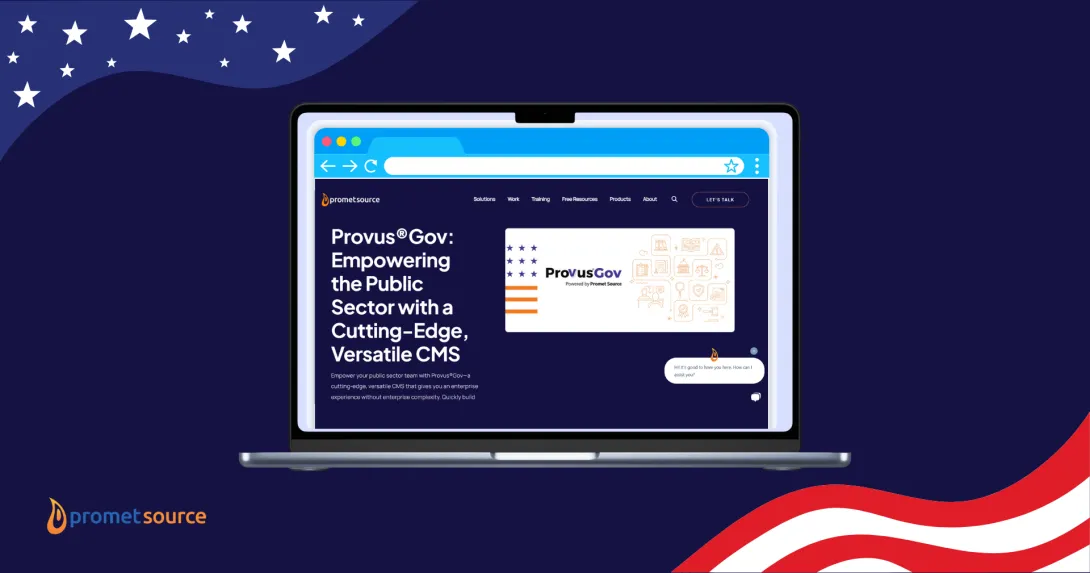Do You Need Drupal?


Promet and Drupal go way back. We were at some of the first DrupalCons. We were an Acquia partner back when nobody had heard of Acquia. Most of our work today is building large, complex Drupal sites. (We are branching out though. Feel free to talk to us about Wordpress or other web development needs!) We love Drupal, and we’ve used it to build everything from simple to very complex websites.
However, Drupal 8 has changed the Drupal ecosystem. Drupal 8 is designed for engaging digital experiences. What does that mean? Mostly it means complex or mission-critical web applications. You can be a 2-person company working out of a basement, but if your website is everything to the business, there may be a good argument to build that site on Drupal 8.
Drupal 7 was a swiss army knife. You can effectively do anything from a small blog site to the largest most complex sites online with it. Drupal 8 is more like a finely sharpened carbon steel Chef’s knife. It still does a lot, but you really shouldn’t use it to peel an apple.
Was that analogy too tortured? Anyway, we are still a Drupal first agency. However, there are definitely use cases where Drupal 8 is not the answer. Compare your project to the examples below to get an idea if Drupal 8 may be the right CMS for your website.
A small 5-10 page “brochure” site that may be updated once a quarter, if that.
This should not be a Drupal 8 site. Wordpress is probably the most common recommendation in this situation, however, I would recommend a different route. If you truly won’t be doing more than the occasional quarterly update, I’d recommend a static site generator (SSG) such as Pelican or GatsbyJS. Wordpress still comes with the overhead of keeping a database-backed web application updated and secure. For a few pages updated a few times a year, I would generate that site with the SSG and push the resulting HTML pages to a web server. With just HTML exposed on the server, your only security concern is if somebody compromises your server account. There is no database or CMS to hack. Your hosting costs are minimized this way too.
A small 50-250 page website that is updated frequently.
On the small end of this spectrum, Wordpress is the most common recommendation. As you get to the 250-page end there starts to be an argument for Drupal 8, especially if you are dealing with some more complex content types. Be careful though. A cheaper Wordpress shop will buy a $30 theme and tweak it to fit your needs. This can work fine, as long as the theme they buy was well constructed based on Wordpress best practices. Often those purchased themes are kind of a mess at the code level.
If the site is small with static content that is highly trafficked, you can do something really interesting by using the GatsyJS SSG as a front end to Drupal. You can manage the content via Drupal, but publish it as static HTML pages via Gatsby to minimize hosting overhead and improve performance.
A large site with hundreds or thousands of pages that are updated rarely.
Drupal 8 will be the normal recommendation here, and it’s a perfectly valid recommendation. Drupal will allow you to publish structured content across the entire site, plus use taxonomy to relate content. If you need to manage user permissions about who can do what with the content, Drupal 8 becomes a great answer.
But what if you are publishing documentation that will almost never change? Do you really need the overhead of an enterprise-grade CMS that will get used rarely once the site launches? I think the static site generators are a really interesting solution to this use case. Pelican, to reference the SSG I’m most familiar with, can implement tags to relate content, and can identify different authors if it is a multi-author scenario, It has no concept of user permissions though. I’m not aware of any major sites that have been done this way, but it seems like a very low overhead answer to the publish a lot of content once and then mostly forget about it scenario. If you have a project like this let’s talk!
You have a large complex site that has a variety of content types that integrate with 3rd party systems, and it’s crucial to your business that the site stays available and performant.
This is the Drupal 8 wheelhouse. This is what Drupal 8 does best. You can think of Drupal 8 as a box of standard Lego bricks. What you build with it is only limited by your imagination, time and resources. (How big is that box of Lego bricks?) A few of the scenarios that Drupal excels at include:
- Multi-author websites where you need granular control of publishing and editing permissions by either individual users or groups. This extends to workflow issues where you need a publishing workflow for editorial oversight.
- E-commerce applications where you are generating significant revenue from the website.
- Integrated solutions where the website needs to share or sync data with other business systems such as a CRM or AMS.
- Multi-site applications where you need to manage dozens to hundreds of websites that will all share common elements while allowing for localized control of specific content elements on specific websites.
- Multi-output applications (decoupled Drupal!) where you need to deliver the same content to disparate devices such as web browsers, mobile apps, digital signage, voice-activated devices such as an Amazon Echo or Google Home device; and future devices we might not have thought of yet. I can see us interacting with websites via voice activation in our cars in the not too distant future, if it's not already being done.
- Multi-lingual websites where you need to manage translated content.
Hey Chris, you didn’t mention SquareSpace, Wix and similar services for smaller sites.
That is correct, I didn’t. Promet is an open source consulting firm, and personally, I’m an open source advocate. I avoid proprietary solutions when an open source option exists. That said, if you need to publish a small static website and want to take the path of least resistance with SquareSpace or similar, I don’t think it’s a particularly bad idea. If your content got locked up in one of those services the site is presumably small enough that starting over won’t be that painful. But I’m not going to recommend those services, at least not in writing ;)
If you have any questions about what to do with your website please get in touch.
Get our newsletter
Get weekly Drupal and AI technology advancement news, pro tips, ideas, insights, and more.





